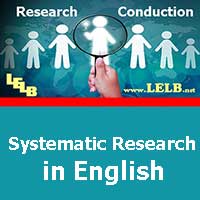Table of Contents
Research Hypotheses
Research hypotheses are based on observations or on what the literature suggests the answers to research questions might be.
- There may be times when, because of a lack of relevant literature, hypotheses cannot be generated because the researcher is dealing with new and/or unexpected areas. So their presence is not obligatory.
- They should be testable given the methods adopted for the research.
- Research hypotheses stem from research questions. E.g., if we have three research questions, then at least we should have three research hypotheses.
- A hypothesis is a tentative, intelligent guess posited for the purpose of assisting the researcher in directing his thinking toward the solution of the problem.
- A hypothesis should neither be proved nor disproved; i.e., to set out deliberately to prove a hypothesis would defeat impartiality in research. Rather, they are dependent on their acceptance or rejection upon what the facts ultimately reveal.
- A hypothesis should be formulated to account for the observed phenomenon that presents a problem.
- After the problem has been chosen, brainstorming for the possible hypotheses is an important component of research.
- Once a hypothesis emerges, the researcher will take one direction and purpose.
- Hypothesis and theory are often used interchangeably. Hypothesis is a less certain conclusion, although theory is never totally certain, either.
- It is not possible to do a research without a hypothesis, otherwise, the result will be nothing more than a compilation of facts.
- It is generally preferable and advantageous to express all hypotheses in complex sentences, so that they set forth the problem, solution and the outcome.
- Research hypotheses are predictions or expectations that the researcher makes or generates in relation to the research questions motivated by the literature review.
- They form a part of the theoretical framework.
- Use these verbs: presume, assume, believe, posit, suppose, etc.
Some Prefabricated Sentences
- This research is going to investigate whether this hypothesis is tenable or not.
- This inquiry intends to test this hypothesis.
- A hypothesis that is going to be put to the test



